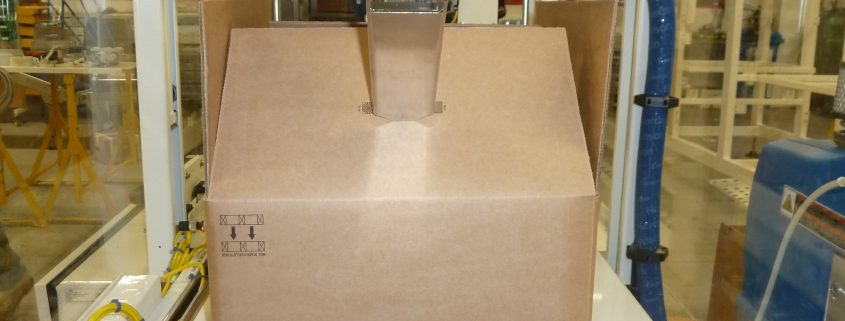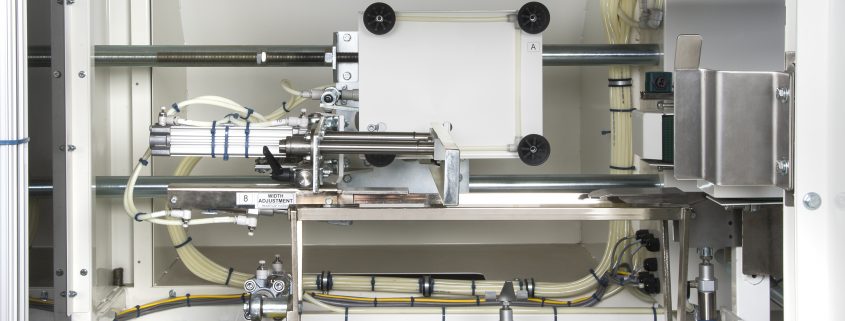Endoline’s automated solution whips up efficiency for ice cream maker
Automating the packing process of their award winning ice-cream range with Endoline Machinery, has enabled Marshfield Farm to improve production efficiency and dramatically decrease customer lead times, while packing 30,000 litres of ice cream per day.
Family run Marshfield Farm, which is now in it’s 30th year, produces over 30 flavours of ice cream at its Wiltshire based, 1,100 acre organic farm, which is home to 250 dairy cows.
Once the ice cream is made, it is put straight into blast freezers overnight. The following day, the ice cream is packed into either 5 litre or 4 litre outer boxes, outer cases are erected, the tubs packed within them, before being sealed and shipped to over 6,000 independent retailers across the UK.
However, this process was traditionally manual and, due to retail demand for the 5 litre tubs to be packed into individual cases for easier storage, the process of packing was lengthy. Due to the frozen nature of the ice cream, it meant lead times were often longer as the packers could only manage small batch runs. “The packing time was variable when completed manually and, due to the nature of ice cream, we ran the risk of the product melting in the small window we had.” Comments Marshfield Farm owner, Will Hawking. “In addition, when manually erected and sealed, the cases were not always uniform, which left the product vulnerable further down the supply chain, and in transit to the customer.”
Realising the potential efficiency gains he could make by automating the packing process, Will contacted Endoline Machinery, who are specialists in end of line systems.
In June 2017, Endoline installed a semi-automated fully integrated line within Marshfield Farm, incorporating its 221 Fully Automatic Case Erector, conveyor systems, stainless steel packing tables, its 702 Fully Automatic Case Sealer and a Markem Imaje labeller.
Today, once the tubs of ice cream are taken from the blast freezer, the entire packing process takes just 15 seconds, a reduction in time by over 80%.
Once the cases are formed via the 221, they are transported via a powered belt conveyor to the packing stations where cages holding the product are delivered. As two manual workers are filling the cases, Endoline fitted the conveyor to an ergonomically friendly height for ease of use. The filled cases are then pushed on to a powered roller infeed conveyor to be automatically closed, and the top sealed by the 702 case sealer. Before being manually palletised, the sealed cases are run through a fully integrated print and labeller printer.
Marshfield Farm packs the ice cream in two different case sizes, one for the 5 litre tubs, and a second case size for six, 4 litre ice cream tubs. According to Will, the process of changing the case sizes is simple and doesn’t cause any downtime.
“Automating the packing process has significantly increased our production efficiency and sped up delivery times considerably.” Will concludes. “At it’s maximum speed we are now packing 15 cases a minute, which will enable us to grow the business in the future.”



